Finding the Best Preschools in Weston, Florida: A Parent’s Comprehensive Guide
Choosing preschool is one of the most significant decisions parents make, and families in Weston, Florida deserve accurate, comprehensive information to guide this choice. This guide provides everything you need to know about evaluating preschools in Weston and finding the program that’s the right fit for your family.
What Makes a Quality Preschool in Weston, Florida Different
Not all preschools are created equal. The differences between average and exceptional preschools have real impacts on children’s development, learning, and joy in the classroom.
Curriculum Philosophy and Educational Approach
Quality preschools in Weston have clearly articulated educational philosophies and use evidence-based curricula. Rather than simply providing “supervision” or recreational activities, quality preschools intentionally design learning experiences.
Theme-Based Curriculum
One of the most effective approaches used in quality Weston preschools is theme-based learning. This approach organizes learning around central themes—animals, weather, community helpers, seasons—and integrates all curriculum areas (language, math, science, social studies, arts, music) through the theme.
The advantages are substantial:
Integrated Learning: Rather than disjointed lessons, children see connections between subjects
Deeper Understanding: Children encounter themes from multiple angles, building more complete conceptual understanding
Multiple Modalities: Themes include visual, auditory, kinesthetic, and other learning channels, supporting diverse learners
Engagement: Theme-based learning naturally engages children’s curiosity and interests
Memory: Information learned through multiple modes and connections is retained longer
When evaluating preschools in Weston, ask specifically about their curriculum approach and request examples of how themes are explored in daily activities.
Developmentally Appropriate Practice Standards
Quality preschools in Weston align with NAEYC (National Association for the Education of Young Children) standards for developmentally appropriate practice. This means:
Activities match children’s developmental level and individual needs
Teachers use observation to understand each child’s learning style and adjust accordingly
Play is recognized as the primary vehicle for learning
The classroom environment is designed to support children’s independence and learning
Teachers form warm, responsive relationships with children
Families are genuine partners in each child’s education
Physical Environment and Safety in Weston Preschools
The physical environment of a preschool has enormous influence on the quality of children’s experience and learning.
Classroom Design and Learning Centers
Quality preschools in Weston design classrooms thoughtfully, with distinct learning centers that invite exploration:
Art Center: Easels, paints, collage materials, markers for creative expression
Blocks and Building: Unit blocks, Lego, accessories for construction play and spatial learning
Dramatic Play: Dress-up clothes, role-play props for imaginative play
Reading Corner: Engaging books at children’s level, comfortable seating for literacy engagement
Math and Manipulatives: Puzzles, counting materials, sorting activities
Science and Sensory: Observation activities, sensory exploration materials
Music and Movement: Instruments, scarves, music for creative movement
These centers aren’t randomly arranged—they’re designed to support specific learning goals while allowing children choice and autonomy.
Outdoor Play Spaces
Quality preschools in Weston understand that outdoor play is non-negotiable for healthy child development. The outdoor environment should include:
Climbing structures appropriate for the age group
Open space for running and large motor play
Shaded areas for comfort in Florida’s heat
Natural elements like plants, grass, sand
Age-appropriate equipment that challenges children physically
Safe surfaces under climbing structures
Research confirms that children who play outdoors daily develop stronger physical skills, better emotional regulation, and greater environmental awareness.
Safety and Security
Quality preschools in Weston maintain rigorous safety standards. Parents should expect:
Secure entry systems and visitor procedures
Background checks for all staff
Clean, well-maintained facilities free of hazards
Appropriate supervision ratios always maintained
Emergency procedures practiced regularly
Current licenses and compliance with all regulations
Staff trained in CPR and first aid
Clear illness and health policies
Documentation of all child allergies and medical needs
Teacher Qualifications and Experience in Weston Preschools
The single most important factor in preschool quality is the teachers. Knowledgeable, caring, well-trained teachers make the difference between mediocre and exceptional preschool experiences.
Professional Credentials and Training
Quality preschools in Weston employ teachers who are:
CDA (Child Development Associate) certified or have degrees in early childhood education
Trained in child development and understanding age-appropriate behavior
Experienced in working with young children (not just trained)
Committed to ongoing professional development and staying current with best practices
Trained in recognizing developmental delays and supporting individual differences
Equipped with skills to handle challenging behavior with compassion
Ask directly about teacher qualifications when evaluating preschools in Weston. This is not an inappropriate question—it’s essential information for your decision.
Teacher-Child Relationships
Beyond credentials, observe how teachers interact with children. In quality Weston preschools, teachers:
Get down to eye level and speak respectfully with children
Use children’s names frequently
Show genuine interest in each child’s ideas and feelings
Provide specific, descriptive praise
Redirect challenging behavior with compassion and teaching
Listen actively to children’s communication
Show warmth and affection appropriately
Work as a team to create a consistent, supportive environment
The relationship children build with preschool teachers powerfully influences their willingness to separate from parents, their sense of security, and their love of learning.
Student-to-Teacher Ratios in Weston Preschools
Appropriate student-to-teacher ratios directly impact the quality of care and educational outcomes. Florida establishes guidelines, but quality preschools often exceed these standards:
Infants (birth to 1 year): Ideal 1:8 or lower
Toddlers (1-2 years): Ideal 1:13 or lower
Two-Year-Olds: Ideal 1:15-20
Three to Five-Year-Olds: Ideal 1:22-25 (though quality programs aim for lower)
Lower ratios allow teachers to:
Know each child deeply and understand their individual learning style and needs
Provide individualized attention and support
Respond quickly to children’s emotional needs
Adapt curriculum to individual development
Build warm, secure relationships
Notice when a child needs extra support
Communication with Families at Weston Preschools
Quality preschools in Weston maintain excellent communication with families, recognizing that home and school should reinforce each other.
Daily Information Sharing
Quality preschools provide parents with daily information about their child’s experience:
What their child ate and slept
Activities and learning experiences
Social interactions with peers
New skills being worked on
Any concerns or behaviors to address together
Photos and videos of activities
Documentation of learning moments
Some preschools use digital platforms that send real-time updates and photos. Others use written reports. Whatever the method, consistent, specific information helps parents understand their child’s preschool experience and support learning at home.
Conferences and Progress Updates
Quality preschools in Weston schedule regular conferences (typically twice yearly) where teachers and parents discuss:
The child’s developmental progress across all domains
Strengths to celebrate and areas where support might help
How the child’s learning style influences their preferences and approaches
The curriculum and what children are learning
How parents can extend learning at home
Any concerns and collaborative problem-solving
These conferences should feel like genuine conversations between partners invested in the child’s wellbeing, not one-directional reports.
Age-Specific Programs at Weston Preschools
Quality preschools in Weston typically serve children from 6 weeks through 5 years, with distinct programs for each developmental stage.
Infant Programs (6 Weeks – 1 Year)
Infant programs prioritize secure attachment, responsive caregiving, and early communication. Daily routines include:
Diaper changing as a connection moment with narration and gentle interaction
Multiple feedings with individual attention
Tummy time and movement opportunities
Sensory exploration
Singing and language engagement
Consistent schedules for security
Toddler Programs (1-3 Years)
Toddler classes incorporate more structured play while maintaining flexibility. These programs feature:
Language-rich environments supporting language explosion
Sensory play and exploration
Beginning gross motor activities
Music and movement
Simple theme-based activities
Art and creative expression
Peer interaction opportunities
Preschool Programs (3-5 Years)
Older preschool classes use full theme-based curricula with more structure, small group instruction, and beginning academic skills:
Integrated theme-based units
Letter recognition and phonological awareness activities
Counting, number concepts, and basic math
Science exploration
Social studies concepts
Group discussions and circle time
Advanced creative projects
Preparation for kindergarten
Specialty Programs and Enrichment
Quality preschools in Weston often offer specialty programs that enhance development:
Music and Movement: Rhythmic activities supporting coordination and creativity
Spanish or Bilingual Programs: Language exposure during critical learning years
VPK (Voluntary Pre-Kindergarten): Free programs for 4-year-olds preparing for kindergarten
Extended Day Programs: Before/after care with educational activities
Summer Programming: Enrichment during the summer months
Financial Considerations for Weston Preschools
Preschool costs vary significantly based on program quality, hours offered, and location within Weston. Understanding what’s included helps you evaluate value:
Is tuition for part-time or full-time hours?
What’s included (meals, snacks, diapers, educational materials)?
Are there registration or curriculum fees?
What’s the payment schedule?
Are there discounts for multiple children or prepayment?
Is the program eligible for VPK funding?
Do scholarship options exist for families with financial need?
Remember that the cheapest option is rarely the best value if quality is compromised. Investment in quality early childhood education provides returns throughout your child’s life.
Questions to Ask When Visiting Weston Preschools
Use this list when visiting potential preschools:
About Curriculum and Learning
What is your educational philosophy and curriculum approach?
How do you incorporate play into learning?
What does a typical day look like?
How do you support children’s individual learning styles?
About Teachers and Staff
What are your teachers’ qualifications and training?
What is your staff turnover rate?
How do you support teachers’ professional development?
What’s your discipline approach?
About Safety and Environment
What are your student-to-teacher ratios?
What safety and emergency procedures do you have?
What is your outdoor play schedule?
How do you keep the facility clean and safe?
About Communication
How do you communicate with parents daily?
How often do we have individual conferences?
Can I observe the classroom anytime?
What should I do if I have concerns?
About Your Child
What if my child has allergies or special needs?
How do you handle separation anxiety?
How do you support children’s individual differences?
What’s your approach to challenging behavior?
Trust Your Instincts About Weston Preschools
After asking questions and observing classrooms, pay attention to your gut feeling. Quality preschools feel warm, welcoming, and intentional. You should see:
Smiling children engaged in meaningful activities
Teachers interacting warmly and respectfully with children
A clean, organized environment with inviting learning centers
Children’s artwork and documentation displayed
Open invitation for parent involvement and questions
Clear communication about what children are learning
Your child will spend many hours in their preschool classroom. Choosing a quality program in Weston that aligns with your values and meets your child’s needs is one of the most important investments you can make in their educational future.



